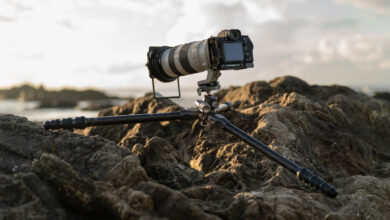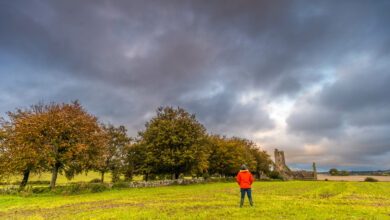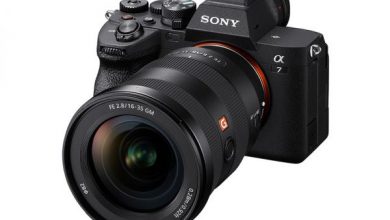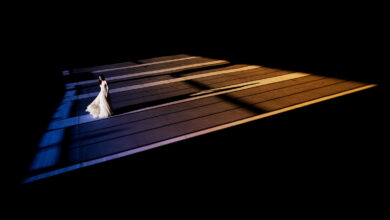Reasons Why Beginners Should Avoid Entry-Level Cameras
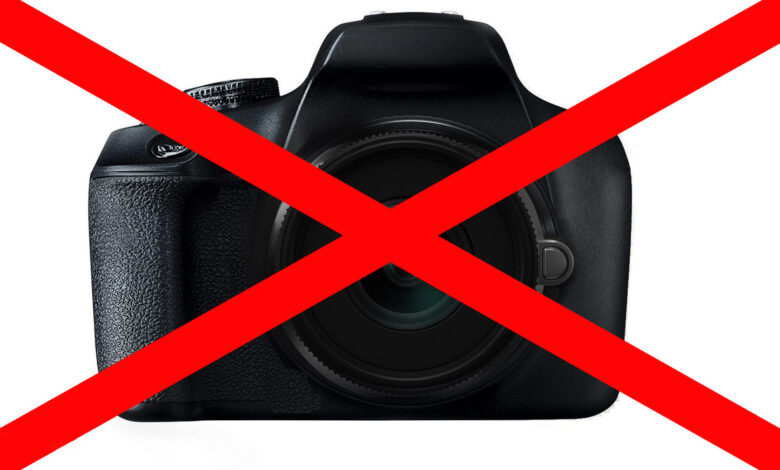
One regular and boring argument proposed by some is that the camera doesn’t matter. That’s hogwash. A good quality camera is vitally important for photography, and here’s why.
I often wonder at some photographers’ motives for suggesting that the camera is unimportant in achieving a good image. Do they mistakenly believe are better than anyone else and, in their ignorance, have found that their photography skills were not improved by their top-of-the-range camera? Consequently, they think that good-quality cameras make no difference.
Perhaps they have entry-level cameras and don’t realize what a big difference a better camera can make. Or are they intent on holding others back? Maybe they are just argumentative curmudgeons with chips on their shoulders that get a perverse kick out of spreading negativity and derision; we’ve all come across people like that.
Whatever their reasons, their arguments why the camera doesn’t matter don’t stand up to scrutiny. Their line of reasoning usually follows that it’s the photographer who creates a great photo and the camera has very little to do with it. To some extent that is true. A bad photographer with a good camera won’t take great photos. Likewise, a skilled photographer will be able to create good images with a low-budget camera. But it is not as simplistic as that.
The Best Camera Is Not Necessarily the One You Have With You
Moreover, however well-intentioned, glib statements like, “the best camera is the one you have with you,” are unhelpful. It just happens to be the only camera you have with you, so it’s also the worst. If you are a wildlife photographer and all you have is a cell phone when you spot a yellow-bellied sapsucker at the top of a tree, the camera you have with you is wholly inadequate and you might as well have no camera at all.
Of course, the camera is not as crucial as the skills of the photographer. Nevertheless, it is still a very important factor in creating a photo and there is very good evidence to prove that.
Why Buying a Better Camera Is Worth the Investment
There’s a strong case for arguing that beginners should buy the best cameras they can afford.
I’m an inept guitar player. I can just about strum along to most songs, and pluck notes in a stumbling, self-taught, unorthodox manner. As much as I would like to dream otherwise, I am no Django Reinhardt, Mark Knopfler, or James Taylor. Nevertheless, my playing is considerably better if I have an instrument that has a nice low action and good quality strings rather than one with a cheap plywood body, a neck that bows inwards, and frets that buzz. Superior quality guitars sound better even with my lowly abilities. With a good guitar, I can get far less unbearable results. It’s also more enjoyable to play. The same applies to almost every other rookie musician and musical instrument.
If you give any budding artists superior tools to work with, they will get better outcomes. That is why, when he was a child, we always bought our son the best-quality drawing and painting materials possible so he could achieve the results he wanted. If we had provided him with washed-out watercolor blocks, crumbling pencils, and overly waxy crayons from a discount store in the local mall, his vision of what he wanted to achieve would have exceeded his capabilities. The restrictions of poor-quality tools would have held him back. He’s now studying art at university and, through hard work, is talented at what he does.
I have friends who trained as a chef, a carpenter, a potter, a baker, an electronics engineer, a mechanical engineer, and an engraver. When learning they were all advised to buy the best tools possible. When I worked in outdoor education, all the instructors and coaches bought top-quality climbing gear, waterproofs, hiking boots, and canoe paddles. In fact, I can’t think of any creative activity or trade where top-grade tools are not important for achieving the best possible results. Why would the same not be true of photography?
Similarly, a photographer can be held back by inferior gear because it restricts their chances of taking better photos. For example, many of the cheapest DSLRs you find in Costco and Walmart have appallingly small viewfinders that make it difficult to frame a shot. The maximum and minimum shutter speeds will be limited, so the creative possibilities will be curbed. Besides their slow focusing speeds, those cheap cameras have a limited number of focus points making it harder to frame a shot, especially if the subject is at the side of the frame. Let’s not forget also, like those low-priced plywood guitars, if it looks and feels like cheap, plastic garbage, it isn’t going to inspire the photographer.
Furthermore, the lenses that are provided with those bargain-basement cameras are usually dull and not as sharp as they might be.

Don’t Fall for the Marketing Hype
Yet, the purveyors of these low-quality cameras make them out to be amazing tools and the means to instantly become a premier photographer. That is not true. How many cheap DSLRs are sitting in cupboards and drawers, abandoned because their owners were deceived into believing that they would turn them into the next Eve Arnold, Ansel Adams, or Annie Leibovitz?
Considering the millions of units that have been sold over the last 20 years, and the majority of sales were in the entry-level range, many DSLRs must be stored away, barely used, never seeing daylight.
If you disagree with that argument, then the only alternative is that those cameras broke. Indeed, those cheap cameras are landfill fodder. Designed to fail, they have relatively short shutter lives, poorly made components, and built-in obsolescence. Consequently, they are a false economy with their cost per click far higher that more expensive cameras on the market.
It’s for those reasons I believe that every photographer should buy the best camera and lenses that they can afford.
You’ll Quickly Grow Out of an Entry-Level Camera
Of course, some beginner photographers aren’t put off by their cheap gear and, despite that hindrance, they persevere. But that early progression from being a novice to an intermediate-level photographer has a steep learning curve. Soon, they outgrow the entry-level model and so need to replace their camera with one that has the functionality they require.
As a result, the world is cluttered with more plastic waste. What is more, tons of carbon dioxide and pollutants go into the air, and waterways are contaminated by that unnecessary manufacturing. That’s before we mention the damage brought about by mining the rare metals required to create the circuit boards in the cameras or considered the cheap labor in the human-rights-abusing countries where many of them are made.
Famous Photographers Don’t Mention Their Cameras, Do They?
When discussing this with someone recently, I was told to look at this or that famous photographer and point out that they never talk about their cameras. That may indeed be true in a few cases, but if you research most of the great names, they have nearly all talked and written fondly about the cameras they use and have used.
Then, look next at contemporary professional photographers and consider the cameras they use; the brand doesn’t matter, but they are all employing top-of-the-range gear. Or, if you visit the elite professional studios, they shoot with the best0quality cameras too. Furthermore, all the brands have some astounding photographers as both employees and ambassadors. They are not using the cheapest cameras in their day-to-day work but the ones far higher up the tree.

Room to Grow into the Camera
But what about the complexity of the higher-quality cameras, I hear the nay-sayers shout. They are too confusing for beginners to use. I find that argument insulting to novice photographers. Who should judge what another is or isn’t capable of? Over the years I have run hundreds of workshops, and there is not a single client who would not have had the capability to take photos using any of the cameras illustrating this article if they had owned it.
Photography requires learning and it is one of the most technical of art forms. If someone has the intelligence to get their head around the exposure triangle, then there is nothing on a flagship camera they won’t learn to use. Furthermore, even the flagship models have advanced average metering, program exposure modes, simple autofocus settings, auto ISO and white balance, and can shoot JPEGs. In short, you can use an EOS R3, a Sony a9 II, a Nikon Z9, and an OM-1 as point-and-shoot cameras. Yes, they are all complex, precision instruments, and there is plenty of space to grow into them as learning progresses.
Not Everyone Can Afford the Top-End Cameras
I would be hard-pushed to afford some of the flagship cameras on the market today. If I were to spend the best part of $6,000 on a flagship Canon EOS R3, Sony a1, or Nikon D6, my wife would probably buy a shotgun.
However, there are other top-of-the-range models for half that price. The Fujifilm X-H2S, the Panasonic Lumix S1R, and the OM System OM-1 are all professional-level cameras that offer exceptional performance for much less.
Additionally, one can look for used flagship models that sell for a fraction of the original price. The original award-winning Olympus OM-D E-M1 first retailed 10 years ago at $1,400. At the time of writing, it could be bought at B&H for $280. In that way, you get a lot more for that money than any entry-level camera that costs $100 more. Likewise, a used Sony Alpha a7 was listed at under $540, and that cost around $1700 new, although that was sold as I was writing this article.
If flagship models are out of your price range and you want a new camera, then most manufacturers have high-end enthusiasts and slightly lower-specced professional cameras that can save you hundreds of dollars. These are far better than the bottom-end models.

Is Your Smartphone’s Camera Good Enough for What You Need
Although the advent of the smartphone ripped the budget camera market apart, some manufacturers still see entry-level cameras as their cash cow. For point-and-shoot photography, there is little need for most people to own an interchangeable lens camera (ILC). The sensor and processor technology in many phones is so good that for day-to-day photography – which accounts for the majority of the 1.6 trillion photos that will be shot this year – they are perfect. Even budget cell phones have amazing cameras. A cheap DSLR with a trashy lens used in auto mode will make very little difference for those sorts of photos.
It’s only when the photographer starts to specialize and wants to do more than just compose a frame that they need an ILC to achieve their goals. That’s the time to buy the best camera possible. Likewise, the best lenses.
There’s one final reason for encouraging people to get into photography with better cameras. It will encourage competition at the top end of the market. Currently, the big manufacturers make it difficult for users to leave the brand. Those photographers who initially invested in a budget-level camera and were not disheartened by its poor quality will want their next camera to be compatible with the lenses and other accessories they already have. So, they stick with that brand. If, however, they realize from the start that they should buy a better camera, they will compare prices higher up the ladder and see what they can get for their money. That competition at the top end will push prices down. That must be good for all photographers.
Of course, there will always be exceptions to what I have written. Moreover, this point of view is thinking out of the box and it challenges commonly held beliefs. But do you agree or disagree with me? Did you quickly find an entry-level camera too restricting? Is your top-of-the-range camera too difficult for you to use? It would be great to hear and discuss your thoughts in the comments.

